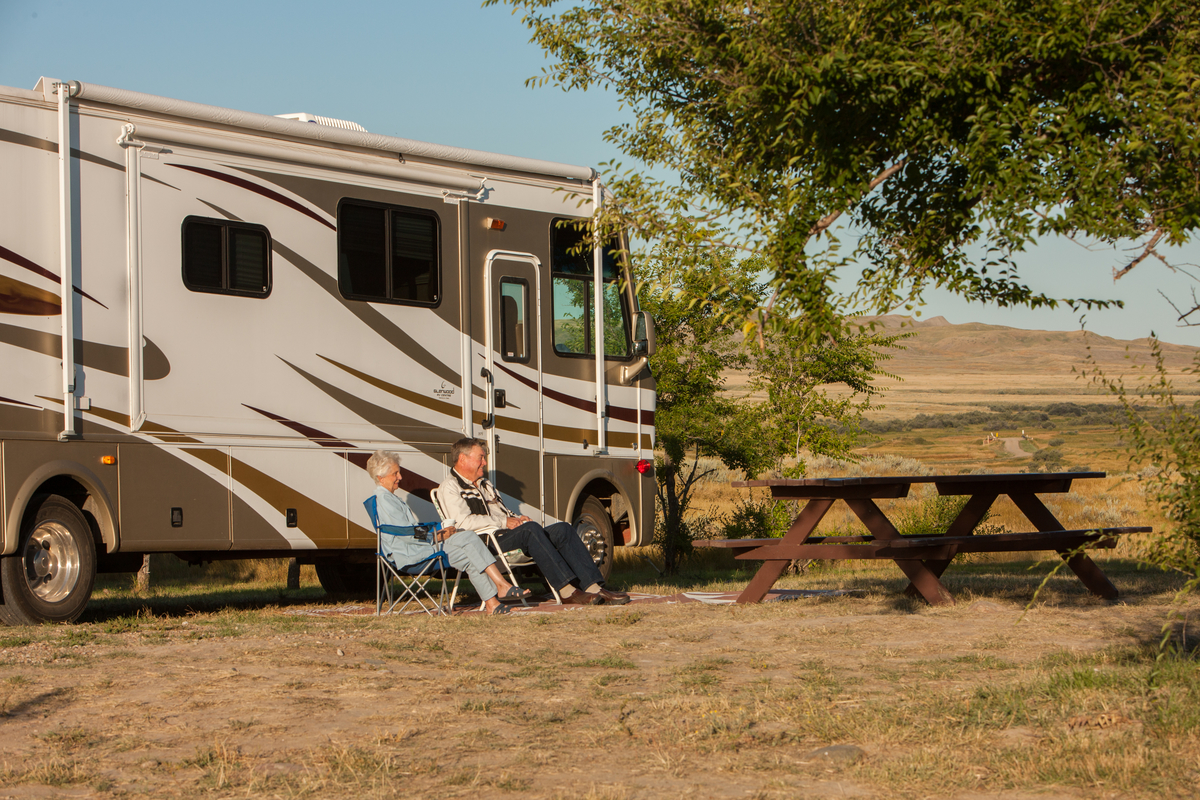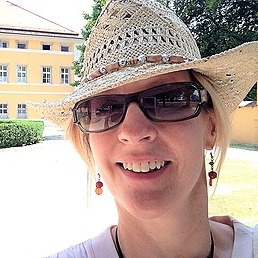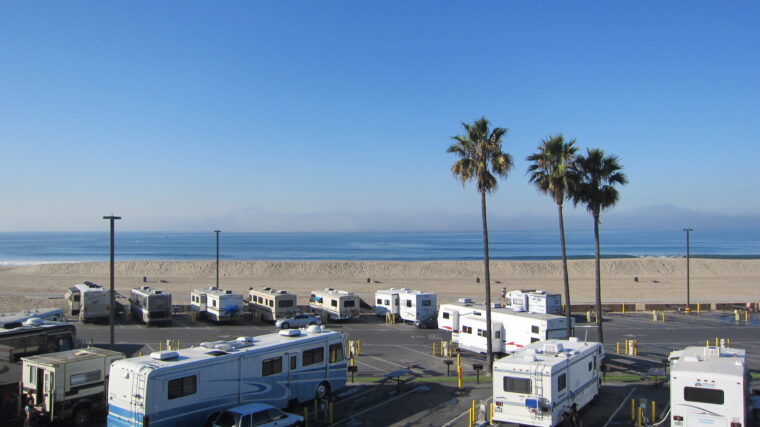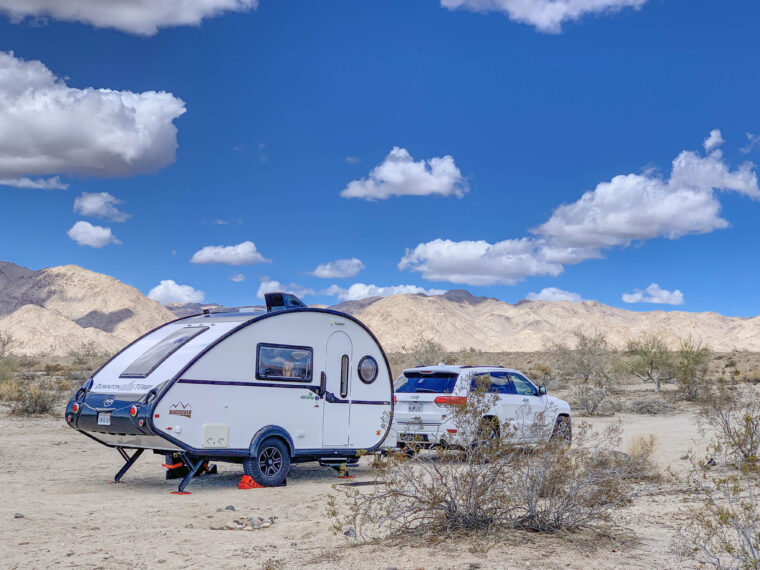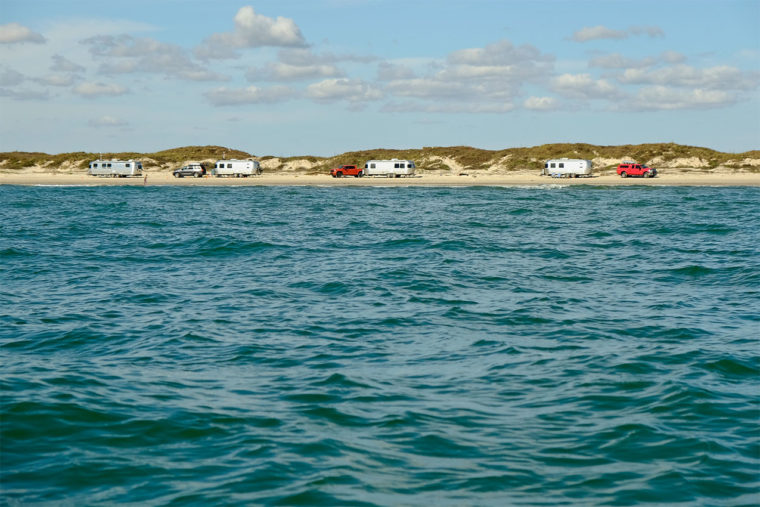Parks Canada has more than 10,000 campsites and various types of accommodations, including cabins, tipis, and yurts. From east to west, here are some lesser-known national parks and campgrounds to check out in 2022.
How and When to Book National Park Stays in Canada
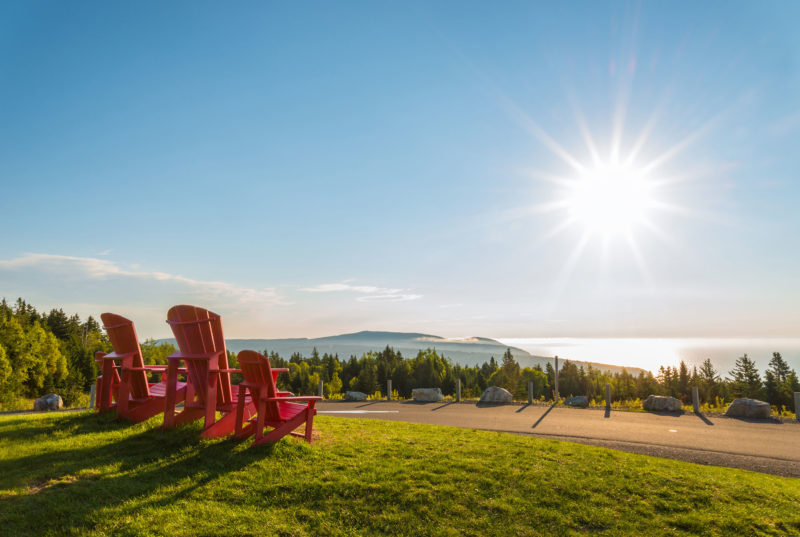
Fundy National Park, New Brunswick
Located on the southeast coast of New Brunswick, along the 150-mile-long Bay of Fundy with its impressive tidal change, Fundy National Park is easily accessible by car or RV from several cities in the Maritimes, including Halifax, Nova Scotia.
With more than 60 miles of trails, you can hike along river valleys, lakes, coastal Acadian forests, and beaches. Frontcountry campgrounds include Cannontown (good for RVs and golfers), Chignecto (with wooded campsites and stargazing), Lakeview (featuring electrical service/forests, and a lake), Point Wolfe (good for hiking and cycling), and Headquarters (which features fantastic views of the Bay of Fundy). Activities here include golfing, sea paddling, beachcombing, and fishing at Bennett and Wolfe lakes.
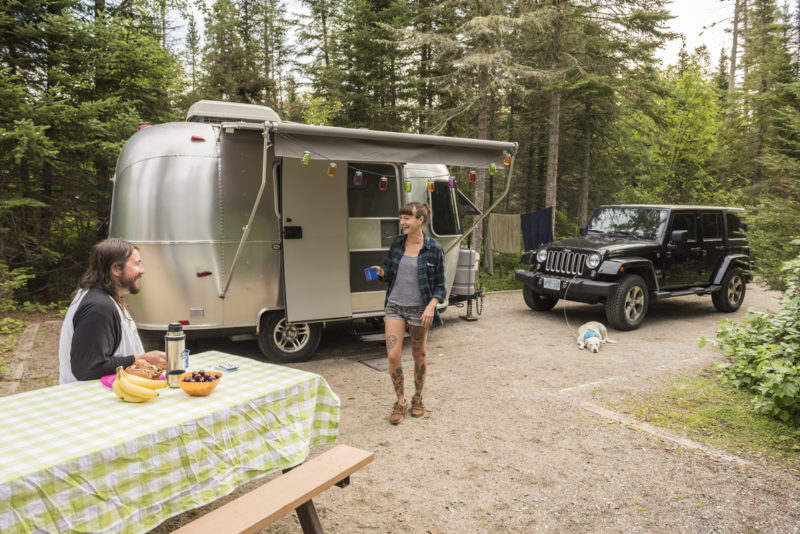
Pukaskwa National Park, Ontario
Pukaskwa National Park is on the shores of Lake Superior in Northern Ontario, 250 miles northeast of the border city of Sault Ste. Marie and just off the TransCanada Highway. Here you’ll find windswept coniferous forests with spruce and pine, towering cliffs, rugged shorelines, secluded sandy beaches and a 40-mile coastal hiking trail with a 100-foot suspension bridge over rapids and the Chigamiwinigum Falls.
Its frontcountry campground, Hattie Cove, is open from May 15 to September 7 (register at the park kiosk) and offers 67 vehicle-accessible campsites designed for one vehicle and a max of six people in two tents or one RV with additional tent or dining shelter. An accessible boardwalk from the campground past rolling dunes leads to Horseshoe Beach, a secluded, sandy treasure. The campsites here are available on a first-come, first-served basis; self-registration is available from September 8 to October 15 (weather dependent).
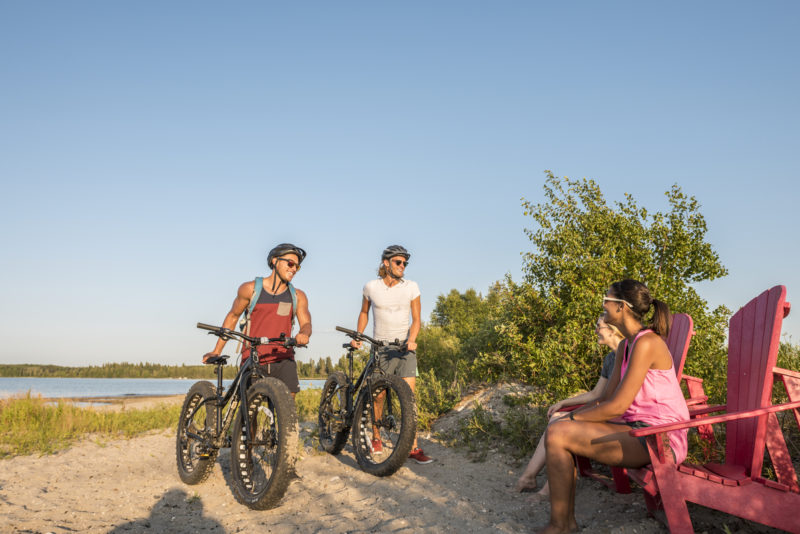
Riding Mountain National Park, Manitoba
Riding Mountain National Park is a 3.5-hour drive west of Winnipeg and has three different ecosystems: grasslands, upland boreal, and eastern deciduous forests. Its forests are abundant with flora and fauna, and the park has many lakes, wetlands, and trails to explore. Canoeing, kayaking, and biking are popular activities here.
Wasagaming Campground at Clear Lake (open mid-May to mid-October) is great for families. There are also four other campgrounds to visit: Deep Lake (featuring trails and wildlife viewing), Moon Lake (with a beach, boat launch, and private sites), Lake Audy (good for fishing and boating; there’s a plains bison herd nearby), and Whirlpool Lake (this one is tents only and features a boreal forest and canoeing). Some campgrounds are unserviced but welcome RVs.
Hike the Ominnik Marsh Trail or Clear Lake South Shore Trail or head to Clear Lake for beach volleyball or a swim. In the resort-like Wasagaming townsite area you’ll find restaurants and boutiques, a tennis court, mini golf, and a trading post within walking distance of the beach, along with a marina and boat launch. Frith Beach, west of Wasagaming along the lake, has a picnic and day use area.
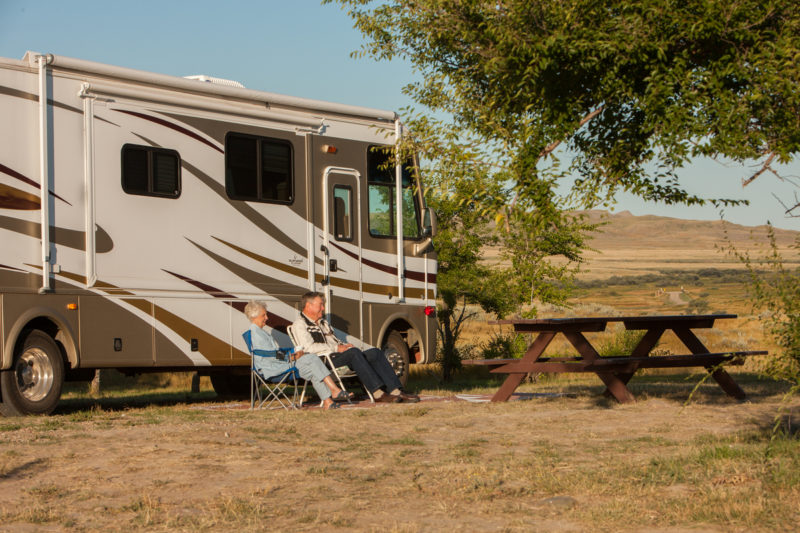
Grasslands National Park, Saskatchewan
Situated in the southwest corner of Saskatchewan, Grasslands National Park is a one-of-a-kind setting, with flat plains and rippling prairie grasses, fossil digs, and Canada’s darkest Dark Sky Preserve.
The park is a 4-hour drive from Regina, the provincial capital, or 7 hours from Calgary, Alberta. Its frontcountry campgrounds are the West Block’s Frenchman Valley Campground (with a river and rolling hill views) and the East Block’s Rock Creek Campground (with kids’ activities and wildlife viewing). Both campgrounds are reservable and have glamping oTENTiks for rent.
There are various outings to try while in Grasslands, such as hiking the 70 Mile Butte Trail (it’s actually about 1.5 miles) or the 7-mile Badlands Parkway drive, which meanders along the rim of the Badlands. Experience the amazing vistas of this unique habitat with wind-sculpted rock formations known as hoodoos.
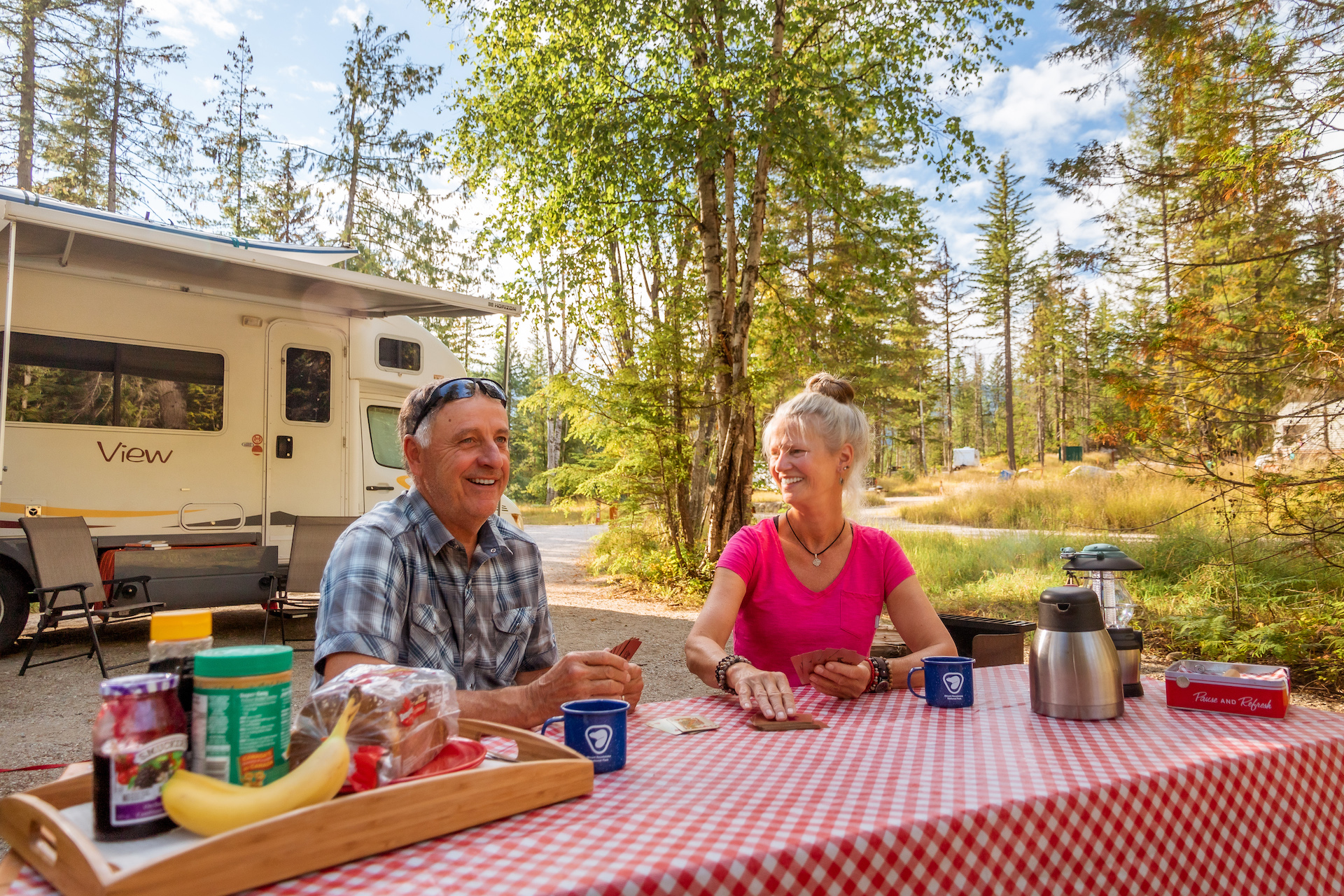
Mount Revelstoke National Park, British Columbia
Mount Revelstoke National Park is located in southeast British Columbia. It’s a frontcountry campground, situated in a cedar-hemlock forest and aptly named Snowforest, a short drive from the mountain town of Revelstoke. Open May 20 to October 11, 2022, Snowforest offers a variety of camping options, from large pull-through RV sites with electricity to walk-in tent sites. Activity-wise, it’s a perfect base for wildlife viewers and hikers to explore Mount Revelstoke’s scenic trails, lookouts, and old-growth forests.
This sub-alpine area is an attractive destination for both road and mountain bikers. The national park even has a kids’ bike park. Check out the Nels’ Knickers Interpretive Trail, which showcases the Nels Nelsen Historic Ski Jump (now an abandoned ski jumping hill). Named for one of the world’s best ski jumpers in the 1920s, the site was designated as “nationally significant” by Parks Canada in 2016 for Nelsen’s contribution to the sport.
